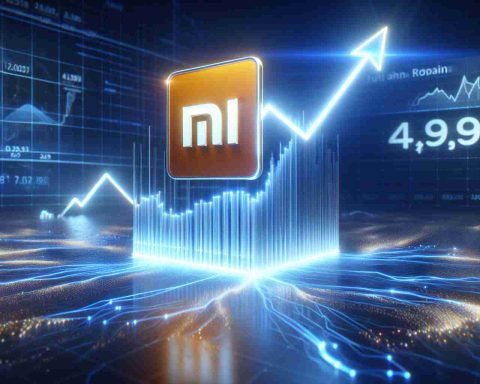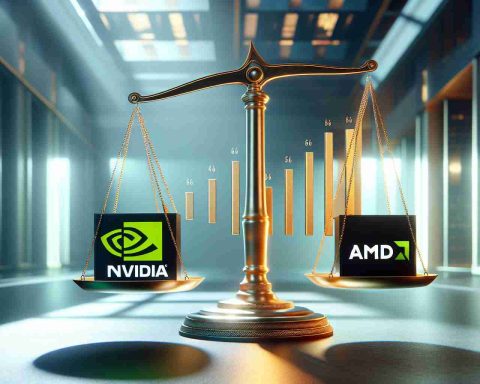In a surprising turn of events, semiconductor giant Advanced Micro Devices (AMD) experienced a significant drop in its stock value, shedding over 5% in early Wednesday trading. This reaction stemmed from an assessment by HSBC, which downgraded AMD’s stock from a “Buy” to a “Reduce” rating. The catalyst for this revision is AMD’s perceived vulnerability in the artificial intelligence GPU sector compared to its formidable rival, Nvidia.
HSBC analyst Frank Lee highlighted several key challenges facing AMD, primarily the lower demand for AMD’s MI325 GPU and supply disruptions concerning high-bandwidth memory from Samsung. Consequently, Lee adjusted the company’s price target from an ambitious $200 to a more conservative $110, pointing out that AMD’s competitive position might not improve until the anticipated launch of its MI400 series, expected between late 2025 and early 2026.
In a separate but strategic move, AMD announced a $20 million investment in Absci, a leader in generative artificial intelligence for drug discovery. The initiative represents AMD’s foray into the life sciences market, aiming to increase the adoption of its Instinct AI accelerators and ROCm software in healthcare.
Absci acknowledged the strategic partnership, planning to utilize the funds to enhance drug discovery projects and AI-driven antibody design models. The partnership will be a focal point of discussion at the upcoming J.P. Morgan Healthcare Conference. The collaboration is hailed as transformative, with AMD’s Chief Technology Officer Mark Papermaster emphasizing its potential to revolutionize biologic drug research through high-performance computing capabilities.
AMD’s Strategic Moves Amidst Stock Fluctuations: A Deep Dive
In the highly dynamic world of semiconductors, Advanced Micro Devices (AMD) has recently faced a significant stock value dip, shedding over 5% in early trading following a downgrade by HSBC. This shift underscores AMD’s current challenges within the artificial intelligence (AI) GPU market, primarily due to tough competition from industry giant Nvidia. However, amidst these challenges, AMD is not just on the defensive; the company is making strategic investments and planning for its long-term presence in emerging markets.
Key Market Challenges and HSBC’s Downgrade
HSBC’s analyst Frank Lee has cited AMD’s decreased demand for its MI325 GPU and supply chain issues related to high-bandwidth memory from Samsung as critical factors in the market’s response. The revised price target from $200 to $110 reflects these challenges, suggesting AMD’s competitive position might remain static until the arrival of its next-generation MI400 series, slated for late 2025 to early 2026. This delay leaves AMD vulnerable in a rapidly advancing field where technological leaps are crucial.
Strategic Investment in Life Sciences
Despite the downgrade, AMD has embarked on an innovative path by investing $20 million in Absci, a pioneer of generative AI applications in drug discovery. This move marks AMD’s calculated entry into the burgeoning life sciences market, with potential to extend the reach of its Instinct AI accelerators and ROCm software beyond traditional tech boundaries. The partnership is anticipated to harness high-performance computing for breakthroughs in biologic drug research.
The Promise of Collaboration with Absci
AMD’s venture with Absci is designed to leverage AI for transformative impacts in healthcare. With plans to enhance AI-driven antibody design and turbocharge drug discovery projects, this collaboration highlights AMD’s strategic ambition to innovate at the intersection of technology and medicine. This partnership is set to be a key topic at the upcoming J.P. Morgan Healthcare Conference, reflecting its significance in the industry’s future.
Predictions and Future Insights
Moving forward, AMD’s trajectory will likely be shaped by its ability to navigate current market challenges while expanding its technological influence into diversified sectors like life sciences. The investment in Absci could signal a new direction for AMD, allowing it to capitalize on AI advancements in unconventional markets, potentially offsetting the competitive pressures in the GPU segment.
For more insights into AMD’s ongoing developments and strategies in various sectors, you can visit their official website at AMD.
In conclusion, while AMD faces short-term hurdles within the AI GPU market, its calculated investments and foresight in the life sciences signify a strategic pivot, aiming to secure a broader market footprint in the coming years.























